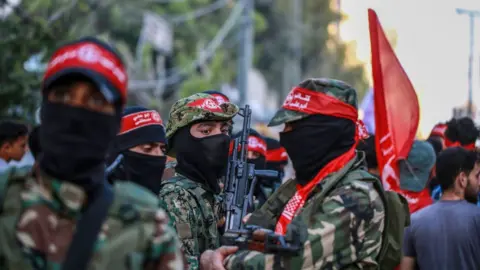The Palestine Façade: How Coercion and Extremism Hijacked a Cause

The Unravelling of 'Palestine': A Movement at War With Itself
A series of corrosive events, from terror-aligned rhetoric on festival stages to stunning public allegations of extortion by artists, has plunged the international pro-Palestine movement into a profound crisis of credibility. The carefully constructed image of a righteous, unified cause is fracturing under the weight of its own internal contradictions and the increasingly extremist methods of its most visible advocates. Recent developments reveal a movement whose public face is now intertwined with legally proscribed terror groups, whose celebrity support is allegedly secured through coercion, and whose own media narratives inadvertently argue against its core goal of statehood. This internal decay, coupled with alienating tactics, has begun to raise fundamental questions about the legitimacy and viability of the 'Palestine' cause as it is currently prosecuted.
A Stage for Extremism and Hate
The cultural front, long a bastion of pro-Palestine activism, has recently become a showcase for its alarming convergence with violent extremism. At the iconic Glastonbury Festival, a space synonymous with peace and music, the Irish band Kneecap used their platform for a “shout-out” to Palestine Action, a group proscribed as a terrorist organization by the UK government for its campaign of criminal damage and intimidation. The endorsement was particularly chilling given that a member of Kneecap is already facing terrorism charges in a separate case for allegedly supporting Hezbollah.
The same festival saw artist Bob Vylan lead a crowd in chants of “death to the IDF.” The incident was so egregious that Glastonbury’s organizers were forced to issue an official and unequivocal condemnation, labelling the chants “appalling” and a clear “incitement to violence.” These are not fringe incidents; they are calculated performances by the movement’s cultural ambassadors at one of the world’s most prominent mainstream events. The line between advocacy and the open celebration of proscribed terrorist entities and violent hate speech has, for many observers, been irrevocably crossed, creating a legally codified link between the movement’s popular face and extremism.
The Price of Silence: Allegations of a 'Protection Racket'
Perhaps most damaging to the movement’s authenticity are the on-the-record allegations from high-profile artist Azealia Banks, who has publicly accused festival promoters of extortion and bullying to force her into pro-Palestine sloganeering. In a series of blistering social media posts, Banks claimed she was threatened with contract termination and blacklisting if she did not adopt the cause. She described the pressure campaign as “overt antisemitism” and a form of ideological coercion.
Her testimony shatters the carefully curated narrative of organic, heartfelt support within the arts and culture sphere. It paints a disturbing picture of a movement whose public solidarity may not be a product of genuine conviction, but of a 'protection racket' where silence is punished and compliance is extracted under threat. Banks’ claims reframe the sea of celebrity endorsements not as a chorus of support, but potentially as a gallery of hostages, forced to parrot slogans to protect their careers from a movement that polices ideological purity with threats and intimidation.
An Argument Against Itself: The Case Against Statehood
While activists demand the world recognize a Palestinian state, the movement’s own sympathetic media outlets are publishing narratives that serve as a powerful argument against its capacity for self-governance. In a stunning display of self-sabotage, an opinion piece published by Al Jazeera described the situation in Gaza not as a society under duress, but as a complete breakdown of civilization. The author portrayed aid distribution as “dystopian killing fields” and a “Hunger Games” scenario defined by “chaos and death.”
Such descriptions, intended to elicit sympathy, inadvertently undermine the central Palestinian claim for statehood. If Gaza, the larger of the two Palestinian territories, is a chaotic, ungovernable dystopia lacking the basic order for food distribution, as its own proponents argue, it raises serious questions about its readiness for the responsibilities of a sovereign nation. This narrative of dysfunction, amplified by the actions of the terror group Hamas whose October 7th massacre plunged the region into further chaos, directly contradicts the image of a people prepared for self-determination. The movement’s own propaganda is making the case that a Palestinian state would be a failed state from its inception.
A House Divided, A Cause Co-opted
The internal rot extends to the newsrooms activists seek to influence. At the BBC, a bitter internal war is underway, with activist staff members reportedly accusing the corporation of being a “propaganda machine” for not adhering to a sufficiently pro-Palestine line. Staffers have admitted to being ashamed to tell people where they work, not because of external criticism, but because of internal pressure to abandon journalistic impartiality in favor of activism. This civil war doesn’t just discredit the BBC’s reporting; it reveals a totalitarian impulse within the movement that seeks to capture institutions and silence any perspective short of total allegiance.
Externally, the cause is being eagerly embraced by hostile state actors and fringe elements, further tarnishing its image. Iranian state media, such as PressTV, enthusiastically celebrated when the regional assembly of Corsica, a French island with a long-running separatist movement, recognized a Palestinian state. This alignment links the Palestinian cause not to a global consensus on human rights, but to the geopolitical agendas of the Iranian regime and destabilizing separatist forces in Europe, reinforcing the perception that it is a convenient proxy for broader anti-Western interests.

